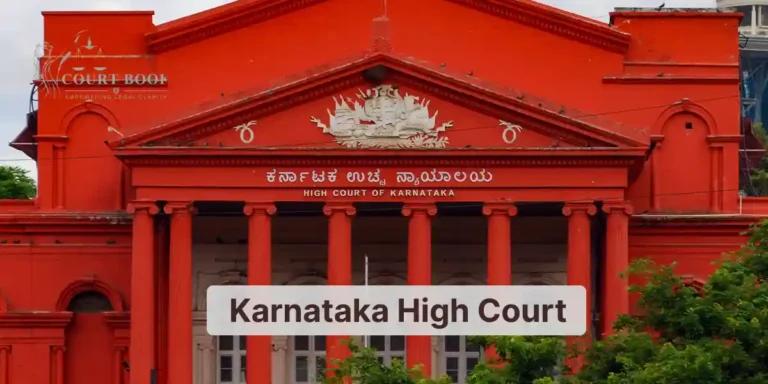The Union Government has firmly stated that illegal or unlawful content does not enjoy the same level of Constitutional protection as free speech under Article 19(1)(a) of the Indian Constitution. This submission was made in response to a petition filed by X Corp, challenging the authority of the government in issuing information-blocking orders under the Information Technology Act, 2000.
In its objections, the Union Government sought the dismissal of X Corp’s petition, arguing that regulating unlawful content is essential to safeguard democratic values and public order.
Government’s Stand on Unlawful Content
The Union Government emphasized that the right to freedom of speech is subject to constitutional limitations, particularly when it comes to unlawful content. It stated:
“Regulating unlawful content is crucial, as its proliferation undermines democratic processes and the integrity of a free and robust marketplace of ideas.”
The government pointed out that with the rapid digital shift, there has been a surge in cyber threats, including the spread of unlawful and harmful information. This has increased the necessity for government agencies to take swift and decisive action in accordance with the law.
Constitutional Classification of Speech
Highlighting the distinction between different types of speech, the government stated:
“The Constitution permits classification of speech into compartments, allowing different levels of protection. For example, commercial speech does not enjoy the same level of protection as other forms of speech. Similarly, illegal speech does not fall under Article 19(1)(a) and does not attract the same level of constitutional protection.”
The government argued that intermediaries, such as social media platforms, have a duty to disable or remove unlawful content if they wish to maintain their “safe harbour” protections under Section 79 of the IT Act.
The Concept of Safe Harbour Protection
The government elaborated on the principle of “safe harbour” for internet intermediaries, which protects them from liability for user-generated content. However, it clarified:
“Safe harbour is always a conditional protection, available only when due diligence is demonstrably exercised by an intermediary. It is not a constitutional right under Article 19(1)(a) but rather a statutory function subject to compliance with applicable laws.”
If an intermediary fails to adhere to these legal obligations, it may lose its safe harbour protection, making it liable for unlawful content on its platform.
Read also:- Karnataka High Court Orders Probe Against Judge for Citing Non-Existent Supreme Court Judgments
Distinction Between Section 69A and Section 79(3)(b) of the IT Act
The Union Government made a clear distinction between Section 69A and Section 79(3)(b) of the IT Act. It explained that:
- Section 69A empowers the government to issue “blocking orders” for online content, and non-compliance carries penal consequences.
- Section 79(3)(b) merely provides notices to intermediaries regarding their due diligence obligations. Non-compliance results in the lifting of safe harbour protections but does not lead to penal action.
The government objected to X Corp’s claim that notices under Section 79(3)(b) were equivalent to blocking orders under Section 69A, calling the argument misleading.
SAHYOG Portal: A Facilitative Mechanism, Not a Power Abuse
Addressing concerns about the SAHYOG portal, the government clarified that it is a platform designed to streamline coordination between intermediaries and law enforcement agencies. The portal facilitates the removal of unlawful content efficiently.
Read also:- Karnataka HC Hears ED's Plea Against Order Quashing Summons to Former MUDA Commissioner
The government asserted:
“The SAHYOG portal is not an unconstitutional exercise of power. It serves as a central mechanism to ensure immediate action against unlawful online information.”
Since its launch in October 2024, 38 IT intermediaries, including Google, Microsoft, Amazon, Telegram, Apple, and YouTube, have been onboarded. Meta Inc., which owns Facebook, Instagram, and WhatsApp, is working towards real-time API-based integration with the portal.
Maintaining Law and Order in Cyberspace
The government stressed the importance of a proactive approach to curb the spread of unlawful content, stating:
“Timely intervention is critical to mitigate potential harm, uphold public order, protect vulnerable populations, and preserve digital rights and safety.”
It further argued that the notifications issued under Section 79(3)(b) do not involve judicial adjudication but merely inform intermediaries about their legal obligations.
Questioning the Maintainability of X Corp’s Petition
Apart from addressing the legal aspects, the Union Government also challenged the maintainability of X Corp’s petition, questioning the locus standi of the foreign company to raise this challenge in an Indian court.
X Corp had sought interim relief to protect its representatives and employees from coercive action for not joining the SAHYOG portal until the final adjudication of the case. The Karnataka High Court is scheduled to hear the matter on April 3, 2025.















